For three years, the country grappled with a global health pandemic that had huge repercussions on the lives of its citizens. In the fight against COVID-19, those on the frontlines have been further challenged by widespread misinformation regarding safety protocols and vaccination hesitancy during the rollout of COVID-19 immunizations. The most vulnerable groups in the community are largely the victims of this, leading to a further increase in their vulnerabilities. Stigma and discrimination towards those affected by the virus continues unabated. Faith leaders and spiritual healers have played a critical role during humanitarian emergencies and natural disasters. They are usually the first responders in a crisis in a community, providing and facilitating response on the ground. They also hold the unique position to influence community behaviour, and bring about attitudinal changes.
In the context of the pandemic, their messages and information sent out to their followers has been an effective means of outreach to the masses. Their moral authority has also played a critical role in facilitating the promotion of COVID-19 appropriate behaviour, dispel rumours and fight the onslaught of misinformation. Faith based leaders are respected figures in the community and are routinely engaged in conversations around socially acceptable behaviors with key stakeholders such as parents, teachers, community influencers and panchayat members, and current government and community-based organizations that are the social protection infrastructure within a district. During the pandemic, faith-based leaders were engaged to address risk perceptions, stigma associated with COVID-19 and most recently dissuade vaccine hesitancy.

Since 2020, Sphere India, in collaboration with other partners, the Interfaith Humanitarian Alliance (IFHA) was established with the primary objective to foster collaboration and cooperation among different religious and faith-based groups to address humanitarian and developmental challenges effectively. Recognizing the diverse religious landscape in India, IFHA aimed to bring together representatives and leaders from various faiths to work towards common goals in humanitarian action.
The IFHA functions as a platform for interfaith dialogue, knowledge-sharing, and joint initiatives to build resilience and provide timely support to affected communities. Through its inclusive and multi-faith approach, the alliance aimed to foster greater understanding, empathy, and unity among religious groups while collectively working towards alleviating the suffering of vulnerable populations. Overall, the Interfaith Humanitarian Alliance plays a vital role in promoting interfaith harmony and cooperation in humanitarian and development efforts, making it a significant force in fostering positive change and compassionate action across India’s diverse society
IFHA Sessions
Sphere India has been organizing plenary sessions of the Interfaith Humanitarian Alliance (IFHA) – an initiative that brings together national level faith-based leaders and organizations to deliberate and jointly respond to COVID-19. In 2020 and 2021, over 30 State-level sessions were organized with strong participation and outcomes on a range of issues to facilitate COVID-19 response. Through these sessions, Sphere India mobilized State Level Interfaith Leaders on preparedness to humanitarian action and has been met with an overwhelming response with participation from all faiths across the country and has been instrumental in addressing the key issues including concerns of all the vulnerable sections. These sessions were also instrumental in defining and applauding the role of faith-based organizations (FBOs) and institutions of religious sects in strengthening the national response to COVID-19.


Joint Appeal
During 2020-2021, IFHA released various joint appeals primarily related to COVID-19 pandemic, wherein representatives of diverse faith traditions in India come together to address a crucial concern. The appeal emphasizes the utmost importance of respecting, supporting, and protecting our front-line workers, who are bravely and tirelessly combating the COVID-19 pandemic. It urges all followers to unite and fight against the stigma and discrimination associated with the virus, by standing in unwavering solidarity with our courageous front-line workers and those affected by COVID-19. Furthermore, as a responsible measure, the appeal calls upon everyone to strictly adhere to COVID-19 safety norms during Alvida Jumma, ensuring the safety and well-being of all during this holy occasion. Together, through collective action and understanding, we can overcome the challenges presented by the pandemic and foster an environment of empathy, compassion, and unity in the face of adversity.
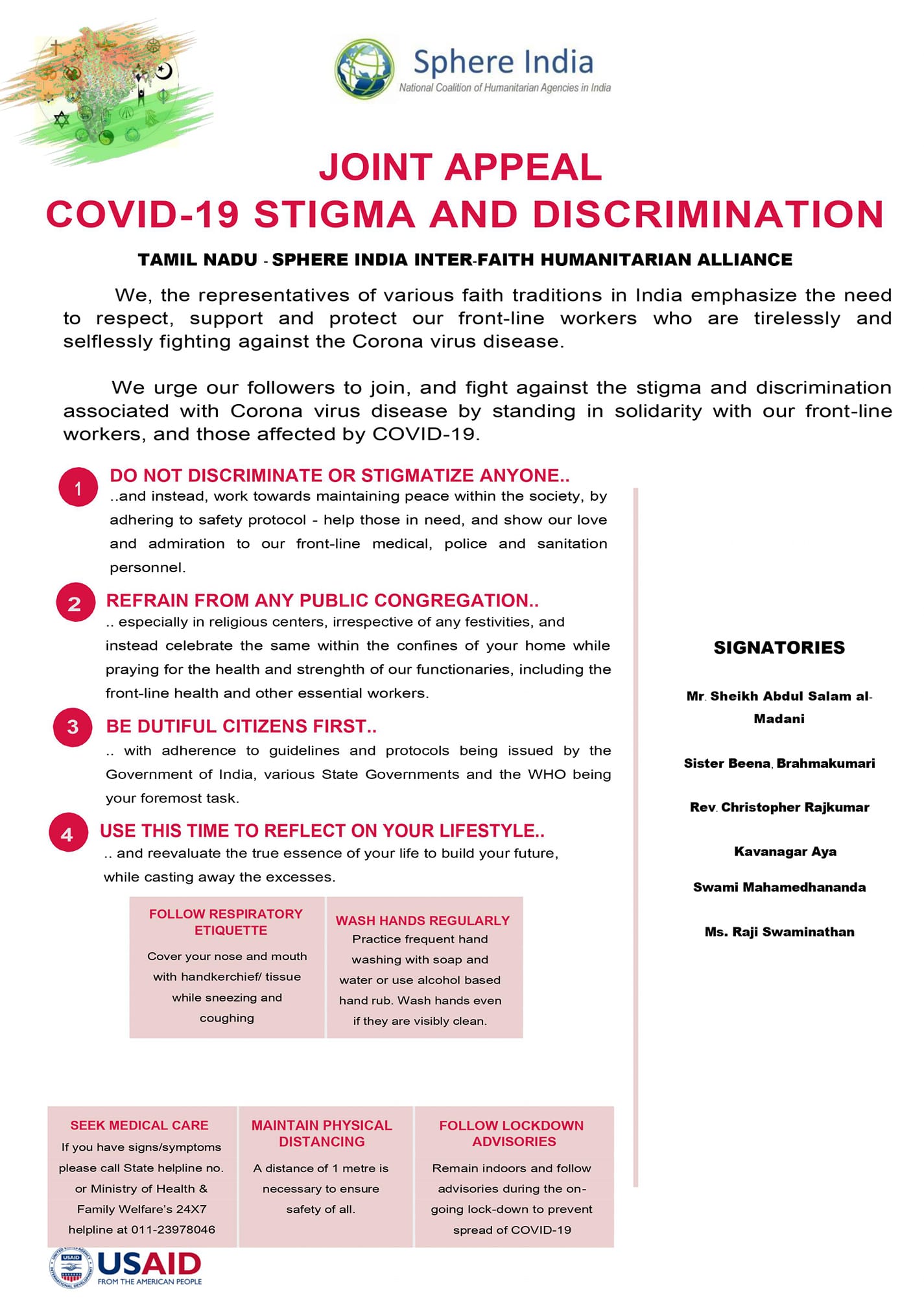
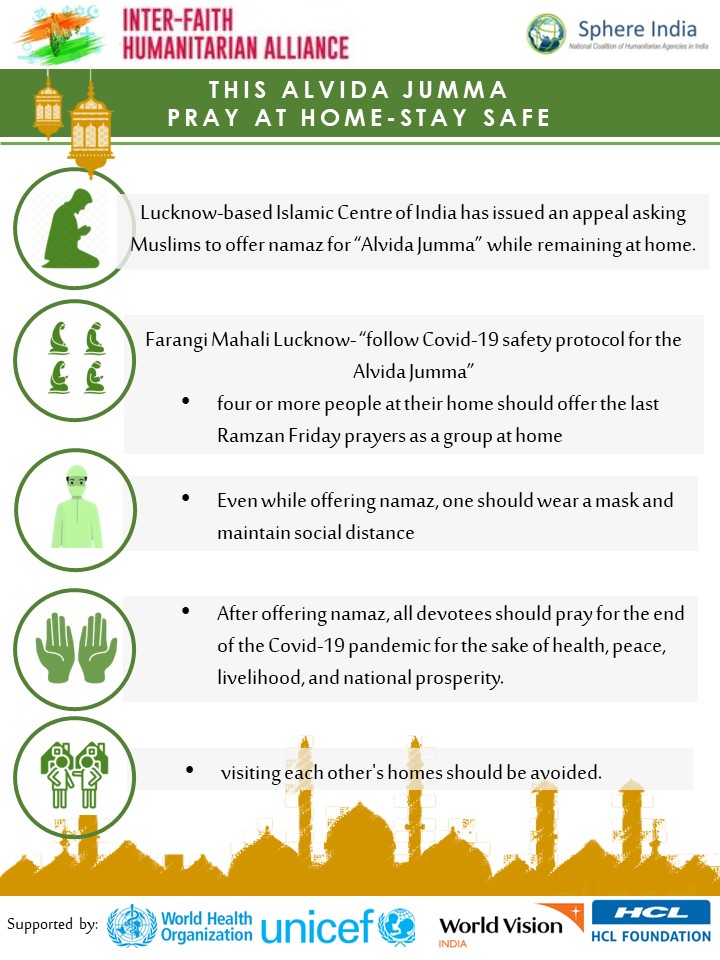
Press Releases
IFHA (Interfaith Humanitarian Alliances) conducted enlightening and impactful sessions, bringing together faith leaders from various traditions in a unified effort to address critical issues. In these compelling sessions, the faith leaders expressed solidarity for COVID Vijetas – individuals who have courageously conquered the disease. They fervently appealed to the public to extend their support and assistance to the survivors and their families during the recovery process. Emphasizing the importance of compassion and empathy, the leaders called for an end to any form of discrimination against those who have triumphed over COVID-19. The press releases for the IFHA sessions were widely circulated, spreading the message of unity and collective responsibility in combating the pandemic’s challenges while fostering an environment of understanding and harmony among communities.
2021-2022
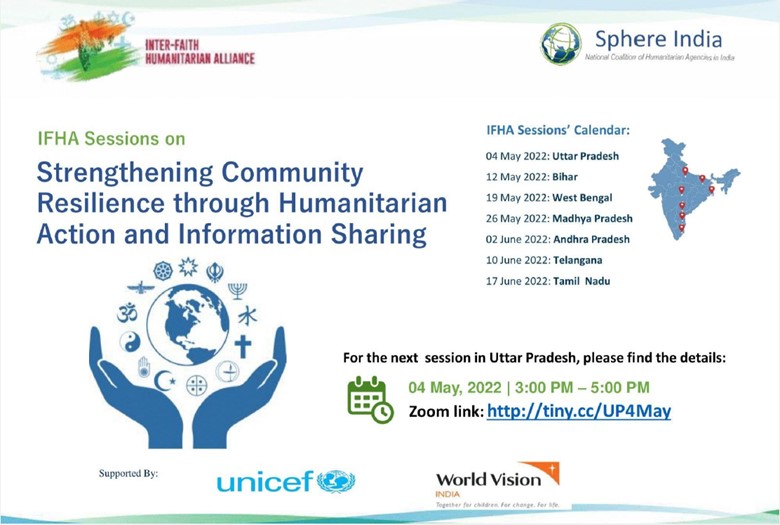
As the world was dealing with emergencies frequently, preventing religion-based discrimination and following the values of peace and harmony was the need of the hour. Faith-based organizations, civil society, and religious leaders had a vital role to play in this scenario, Sphere India in collaboration with UNICEF India and World Vision India organized a series of sessions on Inter-Faith Humanitarian Alliance on Building Preparedness and Strengthening Community Resilience across the country
IFHA Impact Evaluation
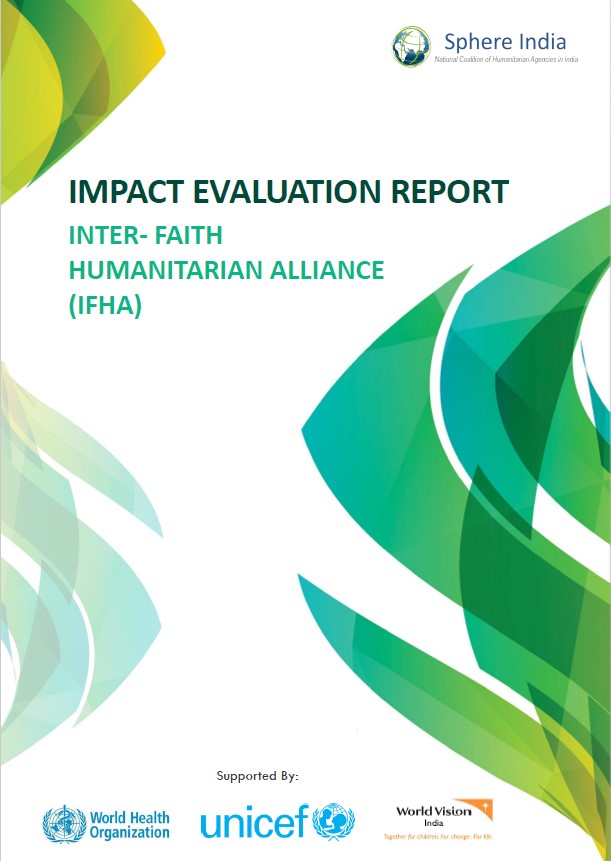
Sphere India has also brought out an Impact Assessment Report to monitor and evaluate the extent of the program and record the lessons learnt during the program’s implementation stage to compare results against IFHA’s set goals and objectives. Sphere India has also brought out an Impact Assessment Report to monitor and evaluate the extent of the program and record the lessons learnt during the program’s implementation stage to compare results against IFHA’s set goals and objectives. Sphere India has also brought out an Impact Assessment Report to monitor and evaluate the extent of the program and record the lessons learnt during the program’s implementation stage to compare results against IFHA’s set goals and objectives.
Sphere India’s Work with Faith Leaders & FBOs on Child Early Forced Marriages
Sphere India along with partners has continued this engagement with Faith leaders for further preparedness and is engaging these leaders to raise awareness about Child Early Forced Marriages (CEFM), gender-based violence, legal provisions that protect girls from CEFM, social support programs for those at risk, the significance of keeping girls in school and encourage leaders to play an active role in preventing and responding to CEFM within their community. Workshops and sensitization sessions were organized to create a safe and open space for faith-based leaders to converse with their communities about preventing and responding to Child Early Forced Marriages (CEFM). This program aims to strengthen and create an interfaith alliance on issues around empowerment of the most vulnerable girls in the ever-evolving COVID-19 scenario.
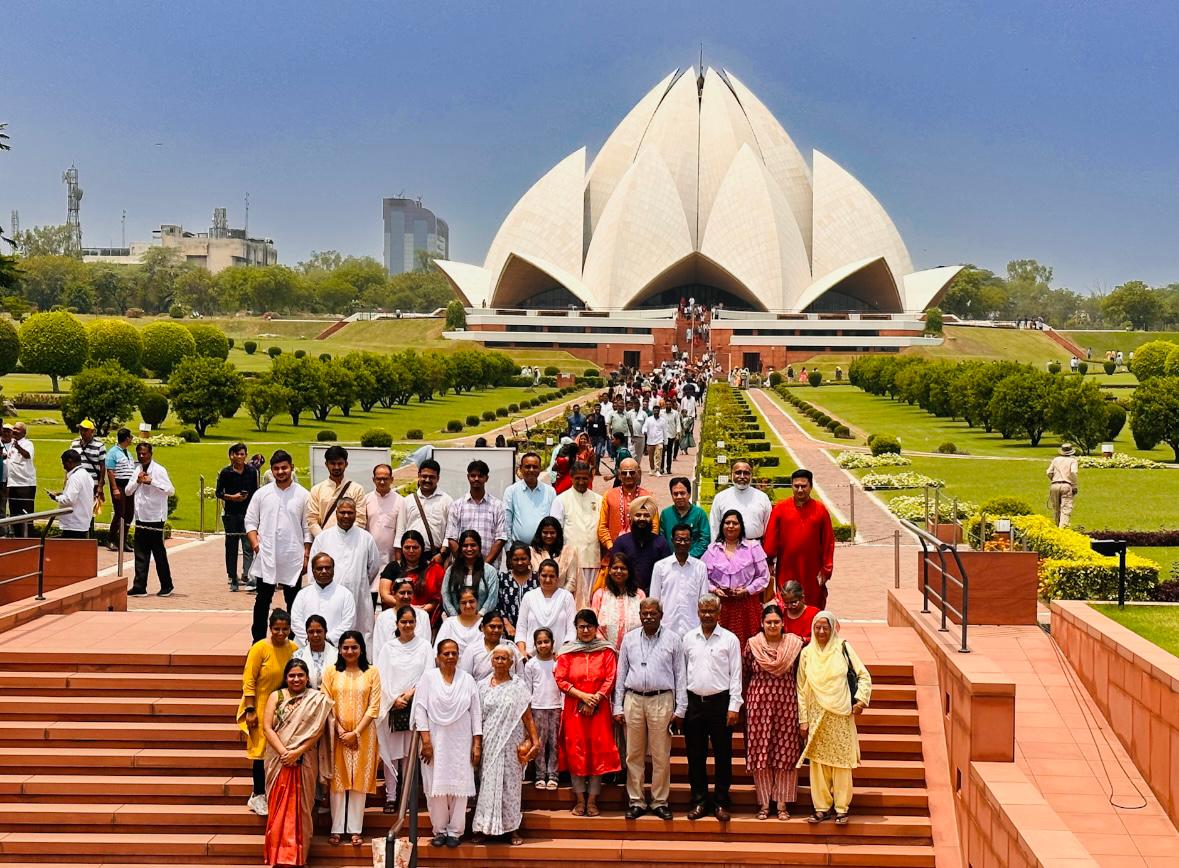
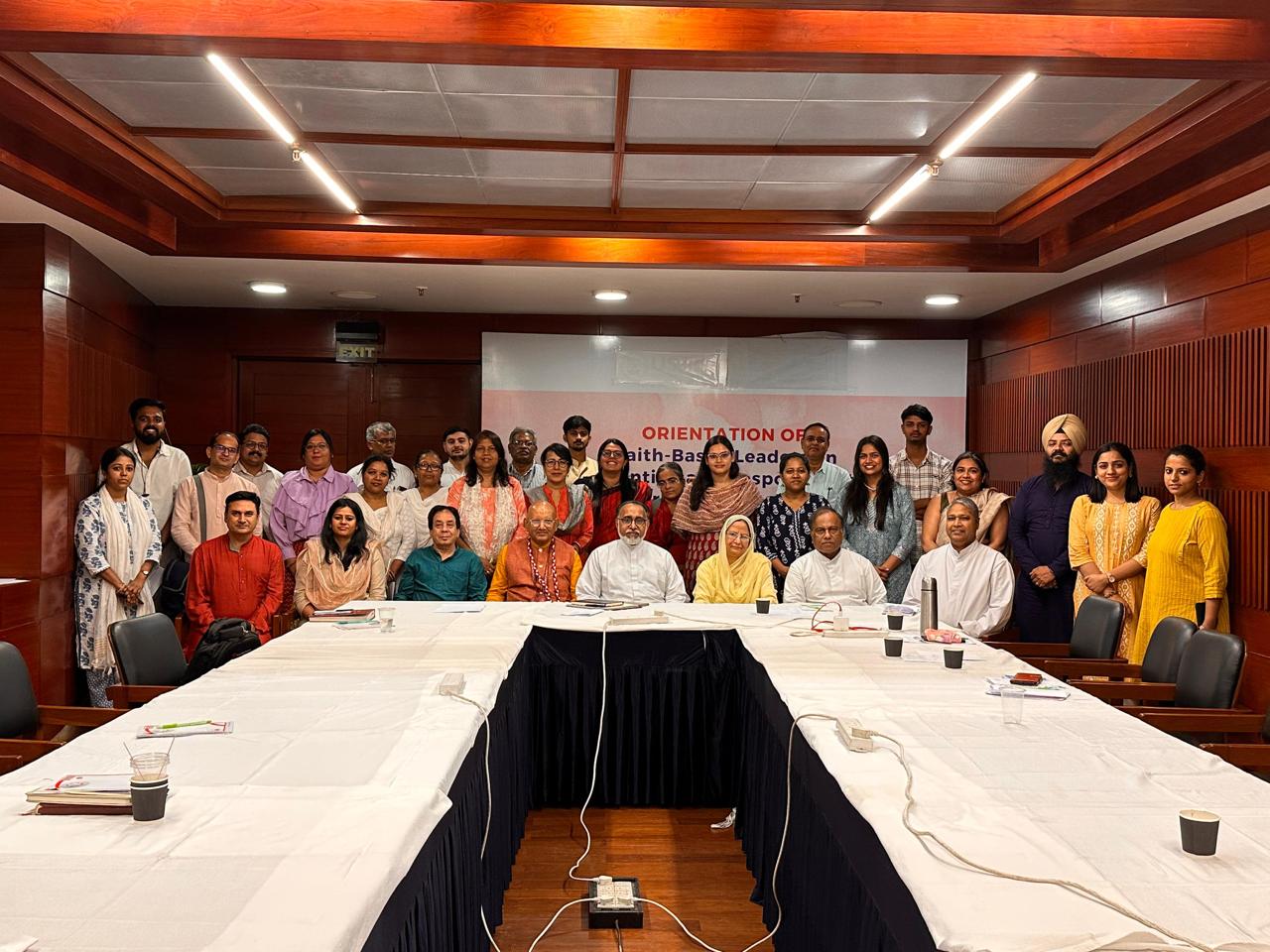
On 22nd June 2023, a national session was held at the Baha’i House of Worship, New Delhi. The session engaged with 45+ faith leaders and representatives virtually and in person to explore the consequences of early child marriage on the physical and emotional well-being of children. The session had prominent faith representatives from Hindu, Sikh, Christian, Buddhist, Judaism, Baha’i communities. The session was led and facilitated by encouraging perspectives on preventive strategies for CEFM. Some of the interesting points that came out including using social media as a tool to share opinions and family being the first unit should have the space for these discussions at large
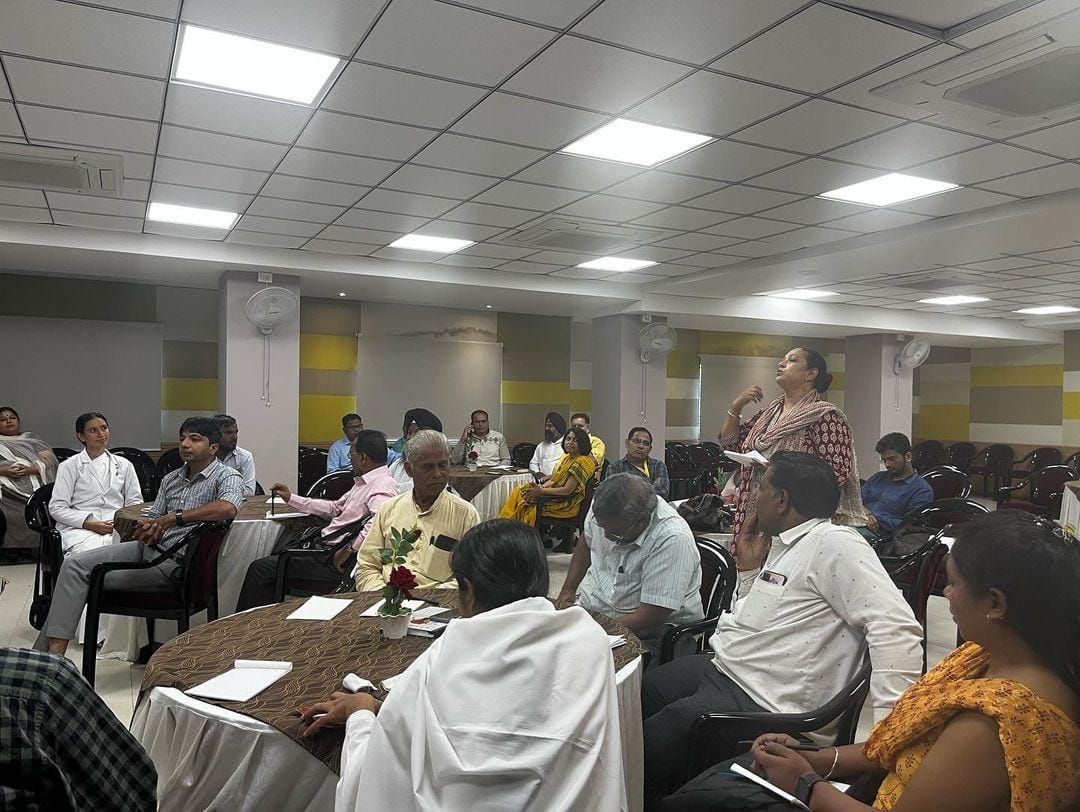

On July 13, 2023, USAID Momentum Country and Global Leadership organized an orientation session in Bhopal, Madhya Pradesh. The session aimed to engage faith-based leaders in the prevention of Child Early and Forced Marriages (CEFM). Over 30 members from diverse faith communities, including Hindu, Muslim, Sikh, Christian, Buddhist, and Bhramakumaris faith leaders and representatives, actively participated in the session. The discussions focused on raising awareness about CEFM, legal safeguards for protecting children from CEFM, social support programs for at-risk individuals, the importance of girls’ education, and the proactive role that faith-based leaders can play in preventing and addressing CEFM within their communities.
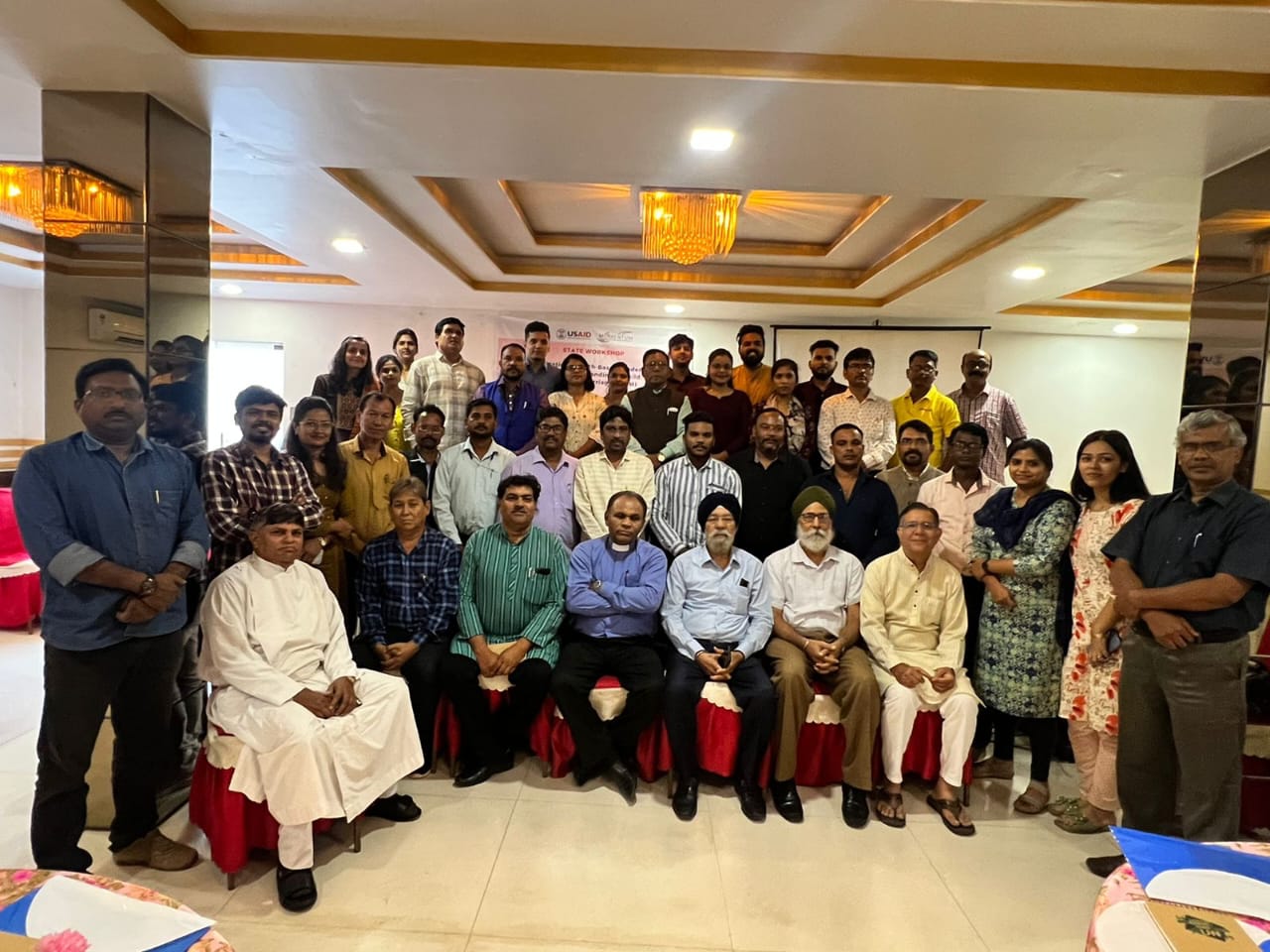

USAID Momentum’s Country and Global Leadership hosted a state-level session in Chhatisgarh, Raipur, on “Orientation to Prevent Child Early and Forced Marriages.” The session saw the active participation of 45 members from various prominent faith communities, including Hindu, Muslim, Sikh, Christian, Buddhist and Baha’i faith leaders and representatives. The deliberations revolved around raising awareness about CEFM, legal provisions that protect children from CEFM, social support programs for those at risk, the significance of keeping girls in school and encouraging leaders to play an active role in preventing and responding to CEFM within their respective communities.
Partners
